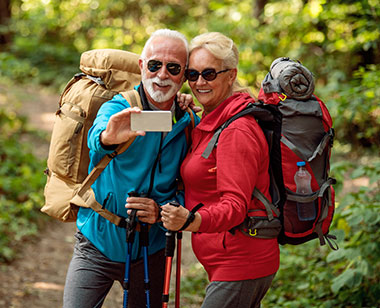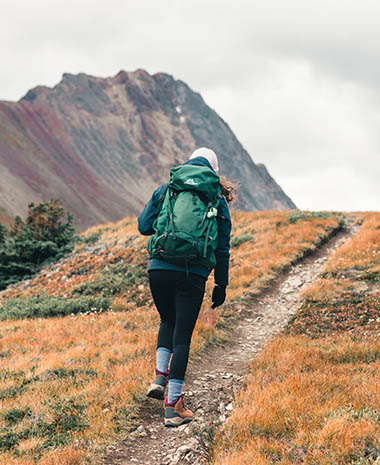Recreation > BackpackingBackpacking for RetireesIgnite Your Wanderlust: The Ultimate Backpacking Guide for RetireesStep into a realm where the world becomes your playground, where vibrant landscapes beckon with untamed beauty, and where the allure of adventure and the call of the wild inspires the imagaination. Unveil the adventurer within and embark on a remarkable backpacking journey. In this article, we embark on a journey of wonder and inspiration, exploring the profound benefits of backpacking, essential trip planning considerations, packing essentials, safety tips, and the art of choosing trails that harmonize perfectly with your spirit. Get ready to embrace the call of the wild, as we unravel the transformative power of backpacking for those who dare to explore. Benefits of Backpacking:Within the embrace of nature lies a tapestry of benefits awaiting those who venture into the world of backpacking. It is not solely a physical endeavor but a catalyst for rejuvenation and connection. As you traverse winding trails, a renewed vitality emerges, cardiovascular health flourishes, and muscles grow stronger. Yet, the rewards extend beyond the physical realm. Backpacking stirs the adventurous spirit, igniting a sense of wonder and a zest for life. It nourishes mental well-being, sparks cognitive function, and serves as a natural elixir to soothe the stresses of daily life. Step into the wilderness, and let the wonders of backpacking unveil themselves..Planning Your Backpacking Trip:Before embarking on a transformative journey, careful planning sets the stage for a fulfilling experience. Begin with thorough research, exploring trails renowned for their natural beauty, captivating landscapes, and cultural significance. Consider your fitness level, assessing stamina and endurance realistically. Gradually build your hiking abilities, allowing yourself to push beyond your comfort zone. Seek advice from experienced backpackers or travel experts, gleaning insights on trail selection, challenges, permits, regulations, and seasonal conditions. Armed with knowledge, your backpacking adventure will be poised for success.Packing Essentials:When venturing into the wilderness, wise packing ensures comfort, safety, and enjoyment along the way. Select a well-fitted backpack designed for hiking, featuring adjustable straps, proper weight distribution, and ample storage space. Pack lightweight, moisture-wicking clothing suitable for varying weather conditions. Equip yourself with sturdy hiking boots, trekking poles, a hat, sunglasses, a rain jacket, sunscreen, and insect repellent. Don't overlook essentials like maps, a compass, a headlamp, a multitool, and a comprehensive first-aid kit. Remember, wise packing ensures peace of mind and sets the stage for an unforgettable journey.Safety Tips:Safety is paramount when traversing the untamed trails. Prioritize your well-being with these essential tips. Share your trip plans with a trusted friend or family member, providing details of the trail, estimated duration, and expected return date. Maintain hydration and nourishment, replenishing energy levels and guarding against dehydration. Carry emergency devices, such as a whistle and signal mirror, to attract attention if the need arises. Prioritize self-care and listen to your body, knowing when to rest and when to push forward. With mindfulness and preparedness, you can embrace the thrill of backpacking with confidence.Choosing the Right Trails:Within the vast wilderness, trails await that match your unique spirit and stamina. Evaluate the difficulty level of trails, ensuring they align with your fitness and experience. Seek destinations that inspire awe, whether it be the serenity of national parks or the uncharted frontiers of remote regions. Let your heart guide you towards trails that whisper your name, offering vistas that resonate with your soul. Remember, the trail you choose is a portal to self-discovery and connection with nature's wonders.Gear RecommendationsTo enjoy your backpacking experience, its advisable to consider what gear will ensure your expedition is comfortable and safe. Here are some ideas that you might wish to consider to help your backpacking trip more enjoyable:
Hiking Boots:
Remember, these are just a few suggestions, and the best gear for you will depend on your individual needs and preferences. Consider your fitness level and experience and hink about the weight of your gear. Every ounce counts when you are backpacking, so choose lightweight gear whenever possible. Also, don't forget about the comfort of your gear. You will be carrying your backpack for long distances, so make sure it is comfortable to wear. Of course, its a good idea to talk to your doctor to ensure you are healthy enough and have sufficient stamina to go backpacking. |
 Photo by ivanko80 / Adobe Stock
Photo by ivanko80 / Adobe Stock Photo by Ali Kazal
Photo by Ali Kazal |